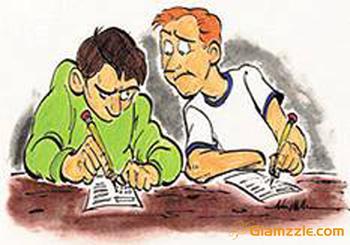Did he know the answer?
 In answering a question on MCQ test with 4 choices per question, a student either knows the answer or guesses or copies the answer. Let
2
1
be the probability that he knows the answer,
4
1
be the probability that he guesses and
4
1
be the probability that he copies it.
In answering a question on MCQ test with 4 choices per question, a student either knows the answer or guesses or copies the answer. Let
2
1
be the probability that he knows the answer,
4
1
be the probability that he guesses and
4
1
be the probability that he copies it.
Assuming that a student who copies the answer has a 4 3 probability to be right, what is the probability that the student knows the answer, given that he answered it correctly? Give your answer to 3 decimal places.
The answer is 0.6666666666.
This section requires Javascript.
You are seeing this because something didn't load right. We suggest you, (a) try
refreshing the page, (b) enabling javascript if it is disabled on your browser and,
finally, (c)
loading the
non-javascript version of this page
. We're sorry about the hassle.
3 solutions
Nice! Sometimes its hard to think so straight...
R = student is R ight
K = student K nows the answer
Given that student either knows the answer (with success probability 1), guesses it (with success probability 4 1 ) or copies it (with success probability 4 3 )
P ( R ) = 2 1 × 1 + 4 1 × 4 1 + 4 1 × 4 3 = 4 3
P ( K ) = 2 1
P ( R ∣ K ) = 1
P ( K ∣ R ) = P ( R ) P ( R ∣ K ) × P ( K ) = 4 3 1 × 2 1 = 3 2
The probability of him getting it right is (1/2)*1 + (1/4)(1/4) + (1/4)(3/4) = 12/16 = 3/4. Then the probability of him knowing the answer is (1/2)/(3/4) = 2/3, by sample spaces.
This can easily be done using Bayes' Theorem.Creating a sample space will make it time consuming.
Log in to reply
But this method is way more intuitive. I did it in 20 seconds.
Suppose there are 80 questions on the test. Based on the given information, he will know the answer to 40 questions (all correct), will guess on 20 questions (because there are 4 choices per question, he will get 5 of these correct), and he will copy 20 questions (he will get 15 of these correct). That makes a total of 40+5+15 = 60 questions correct, out of which he knew the answer to 40. Answer is 40/60 = 2/3.